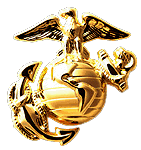|
Tôi Không Biết (I don't
Know*) = 56, 35,
25, 40, 35, 98, 02, 25, 15, 56 where radio operators would say numbers in
Vietnamese 56 = Nam Sau, 25 = Hai
Nam, etc.
Of course different tones on the vowels would be added as well, but just a
couple are shown in this matrix (25 and 35.)
We would
look over a message, see which code matrix best applied, then translated
message into Vietnamese, then English.
If the coded message didn't match an existing matrix, then the cryptographers
would do their thing, sit with a linguist and attempt to begin filling in
the blanks. The more messages
received by a particular unit, the more blanks were filled in. This assumed that the numbers we
received were 100% accurate and not garbled transmissions.
Now, follow this scenario - Memorize the matrices you expect to see during
the watch. When radio traffic is
received:
1. One person listens to the series of numbers that are being transmitted
by the VC in spoken Vietnamese; write them down in pairs. After they have a few number pairs
written, the
2. second person analyzes the pattern to determine
which matrix map to recall from their memory, writes the Vietnamese letter
or diphthong represented by the pair of numbers, and
3. second person also writes the English translation above the Vietnamese.
Meanwhile, the first person continues to listen and write more number
pairs
That process would look something like this:
|
 USMC, 1st Radio Battalion, Vietnam Veterans
USMC, 1st Radio Battalion, Vietnam Veterans